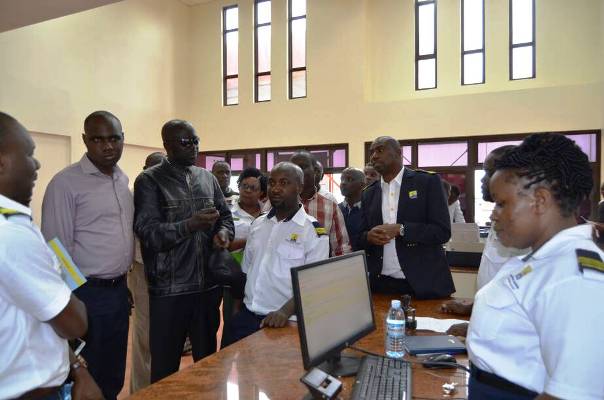The banking industry is worried over the rate at which the cost of living in Uganda is rising threatening the recovery of the economy.
The Uganda Bureau of Statistics reports that headline inflation steadily increased to 6.8 per cent at the end of June, from just 2.7 per cent in January this year, showing how fast the prices of commodities have risen over the six months.
The Bank of Uganda has been using the Monetary Policy to control inflation by increasing the cost of money so that the demand for loans goes down. However, this also comes at a time when the high cost of living, primarily driven by the cost of fuel and other essential commodities on the international market, is driving down economic activities.
Sarah Arapta, the chairperson of the Uganda Bankers Association says that by the beginning of this year, the economic outlooks were very positive and were enhanced by the full reopening of the Ugandan economy. However, according to her, the mood in the economy has been dampened, and this will also affect sectors like tourism, manufacturing and agri-business which are in critical need of finance.
This is the reason the bankers have decided to focus on how to improve financial access to the three sectors during their annual conference later this month.
“The conference will specifically focus on taking stock of the financing gaps and other funding challenges therein constraining the manufacturing, tourism and hospitality, and agribusiness sectors in Uganda in accessing finance and most importantly, how to ready players in these sectors for different types of combination of financing,” Arapta says.
This, according to her, is even more important because the three sectors are part of the priority areas of the Third National Development Plan now in its third year of implantation.
The banks are facing a dilemma of the rising cost of money and the need to lend so as to support their customers in the hard times. The Bank of Uganda has raised the Central Bank Rate by two percentage points in two months, which is unprecedented, taking the rate to 8.5 per cent.
This is aimed at making the cost of money to commercial banks higher so that they raise their interest rates and tame the demand for loans in the public. The Executive Director of the banker’s association Wilbrod Owor says it remains their duty to lend and even make borrowing more attractive so as to enable the private sector enterprises to stay afloat.
He adds that this is the reason they even chose the three sectors of focus, saying that they have better linkages to other sectors of the economy.
The other challenge is that some banks might find it harder to raise money for lending because they have to fund new requirements by the Bank of Uganda.
The regulator recently raised paid-up capital requirements for banks to 150 billion shillings from 25 billion Shillings, while credit institutions must have 25 billion Shillings, up from 1 billion Shillings. This, according to BOU is aimed at ensuring “a strong and stable” banking industry.
Owor says that while the requirements are more stringent, especially for smaller banks, it is important that only banks that are well-founded are in operation.
Asked about what kind of financing products the industry hopes to introduce to make access to financing easier, Owor says the solutions might include a financing mix like combining products by commercial banks with those of long-term lenders like development banks, to get more affordable hybrid products.
The other option he mentioned was continuing to partner with the government to launch affordable financing programs, especially for SMEs.
–URN





